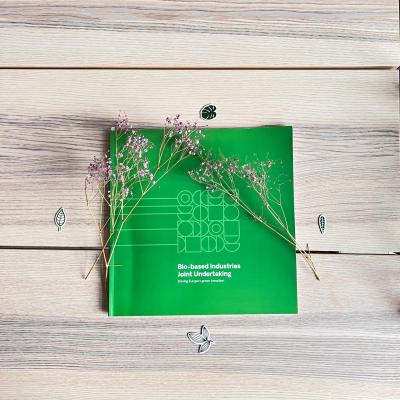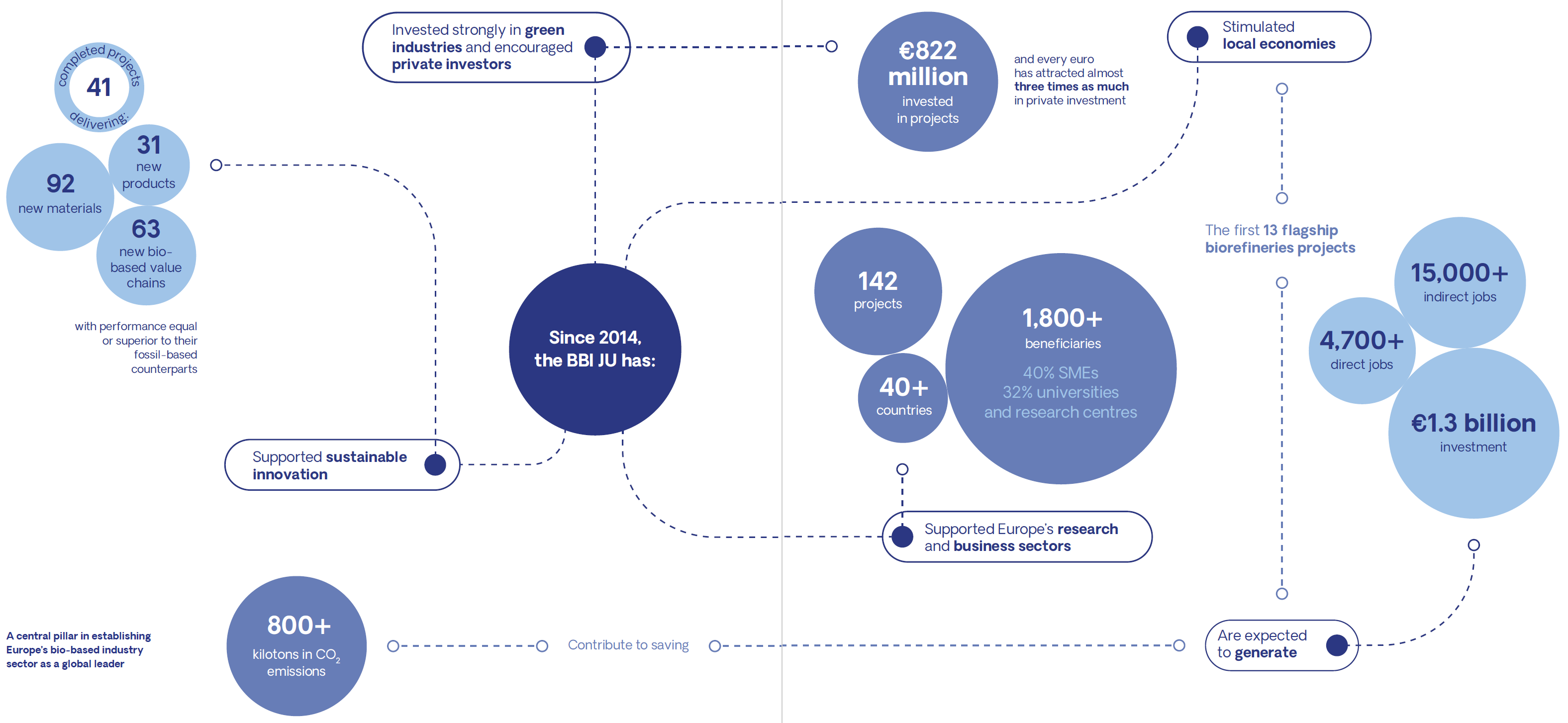
The new book, Bio-based Industries Joint Undertaking: Driving Europe’s green transition, showcases the achievements of the CBE JU’s predecessor that helped Europe to become the world leader in the bio-based economy.
Ten years ago, the bio-based industries were mainly an emerging niche sector. In 2012, the European Commission gave these sustainable industries a push by adopting the first EU bioeconomy strategy. One of the points of the strategy was the establishment of a public-private partnership that would advance the bio-based industries in Europe: the Bio-based Industries Joint Undertaking (BBI JU).
With more than 140 funded projects, the BBI JU’s effect on the bioeconomy has been pivotal in de-risking investments, structuring new value chains across the continent, and mobilising actors of the circular bio-based economy. These two factors are essential in boosting investments and creating jobs that increase Europe’s competitiveness.
Ten years later, in 2022, Europe is the world leader in the bio-based economy. Industrial biorefineries are being built across the continent, attracting investments from all over the world, and implementing innovations that ensure a more sustainable and competitive industry. The Bio-based Industries Joint Undertaking: Driving Europe’s green transition explains the BBI JU’s role in reaching this point.
European leadership for the green transition
Director for Healthy Planet at the European Commission and Chairman of the CBE JU Governing Board, John Bell, highlights in his foreword that ‘we can safely call the BBI JU one of the key contributors to the green transition in Europe. We can also be satisfied that it has successfully mobilised key actors in the bio-based sector, building value chains, contributing to the green recovery, and de-risking investments making Europe an attractive region.’
We can safely call the BBI JU one of the key contributors to the green transition in Europe.
John Bell, ‘Healthy Planet’ Director in DG Research and Innovation (RTD)
Regarding the crucial role of the partnership in establishing competitive industries in Europe, Christian Patermann, widely considered the father of the European bioeconomy, emphasises in the preface that ‘without fully operational bio-based production lines such as biorefineries, biofactories, and in future, perhaps even biofoundries, the bioeconomy concept is always going to remain a ‘nice-to-have’ idea, limited to the esoteric discussions of politicians and academics. However, Europe - through the BBI JU – has made this a reality. This is why this unique initiative is envied by bioeconomy stakeholders outside Europe.’
Bioeconomy stakeholders outside Europe envy the CBE JU initiative.
Dr Christian Patermann, former European Commission director
Former CBE JU Executive Director, Philippe Mengal, discusses in the introduction some of the joint undertaking’s main results and acknowledges the vital role that the founding partners have played in the initiative by saying that ‘none of these achievements would have been possible without the successful cooperation of the two founding partners of BBI and CBE JU, the European Commission, and the Bio-based Industries Consortium (BIC).’
What else is in the book
The book gives the context in which the BBI JU was created, describing the EU bioeconomy and the European policies stimulating the sector’s development. Several chapters focus on the BBI JU results and examples from 2014 to 2020, the revolutionising effect of the initiative in the European bio-based industries, and the way ahead embodied by the CBE JU.

Data showing how the European partnership revolutionised the European bio-based industry
Several CEOs from the bio-based industries and leaders of CBE JU-funded projects contributed to the book through interviews. Take a look at the insights from Novamont CEO (FIRST2RUN project) Catia Bastioli, ENOUGH CEO (PLENITUDE project) Jim Laird, Metsä Spring CEO Niklas von Weymarn, InDIRECT project coordinator Ludo Diels, and BARBARA project coordinator Berta Gonzalvo Bas, among others.
Download Bio-based Industries Joint Undertaking: Driving Europe’s green transition.



